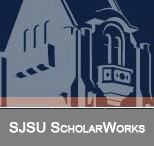Abstract
As it stands, forensic science and its practitioners are held in high regard in criminal court proceedings due to their ability to discover irrefutable facts that would otherwise go unnoticed. Nevertheless, forensic scientists can fall victim to natural logical fallacies. More specifically, confirmation bias is “a proclivity to search for or interpret additional information to confirm beliefs and to steer clear of information that may disagree with those prior beliefs” (Budlowe et al., 2009, p. 803). To restore the integrity of the forensic sciences, the sources of confirmation bias need to be identified and eliminated. Accordingly, empirical studies have given substance to a subject that is intangible and thus difficult to recognize. Inherent and external sources of confirmation bias include the dependence and association of crime labs upon police agencies and the amount of extraneous information made available to verifying examiners. Potentially effective solutions offered to minimize its influence upon the conclusions made by forensic scientists include the privatization of crime labs, the establishment of educational requirements for forensic examiners, the separation of testing and interpretation, and the institution of double blind testing. This effort must be undertaken as the justice system relies on forensic sciences to provide meaningful evidence that can play a prominent role in the fate of those who stand trial.
Recommended Citation
Moser, Scott
(2013)
"Confirmation Bias: The Pitfall of Forensic Science,"
Themis: Research Journal of Justice Studies and Forensic Science: Vol. 1
:
Iss.
1
, Article 7.
DOI: https://doi.org/10.31979/THEMIS.2013.0107
https://scholarworks.sjsu.edu/themis/vol1/iss1/7
References
Included in
Conflict of Laws Commons, Criminology and Criminal Justice Commons, Forensic Science and Technology Commons
